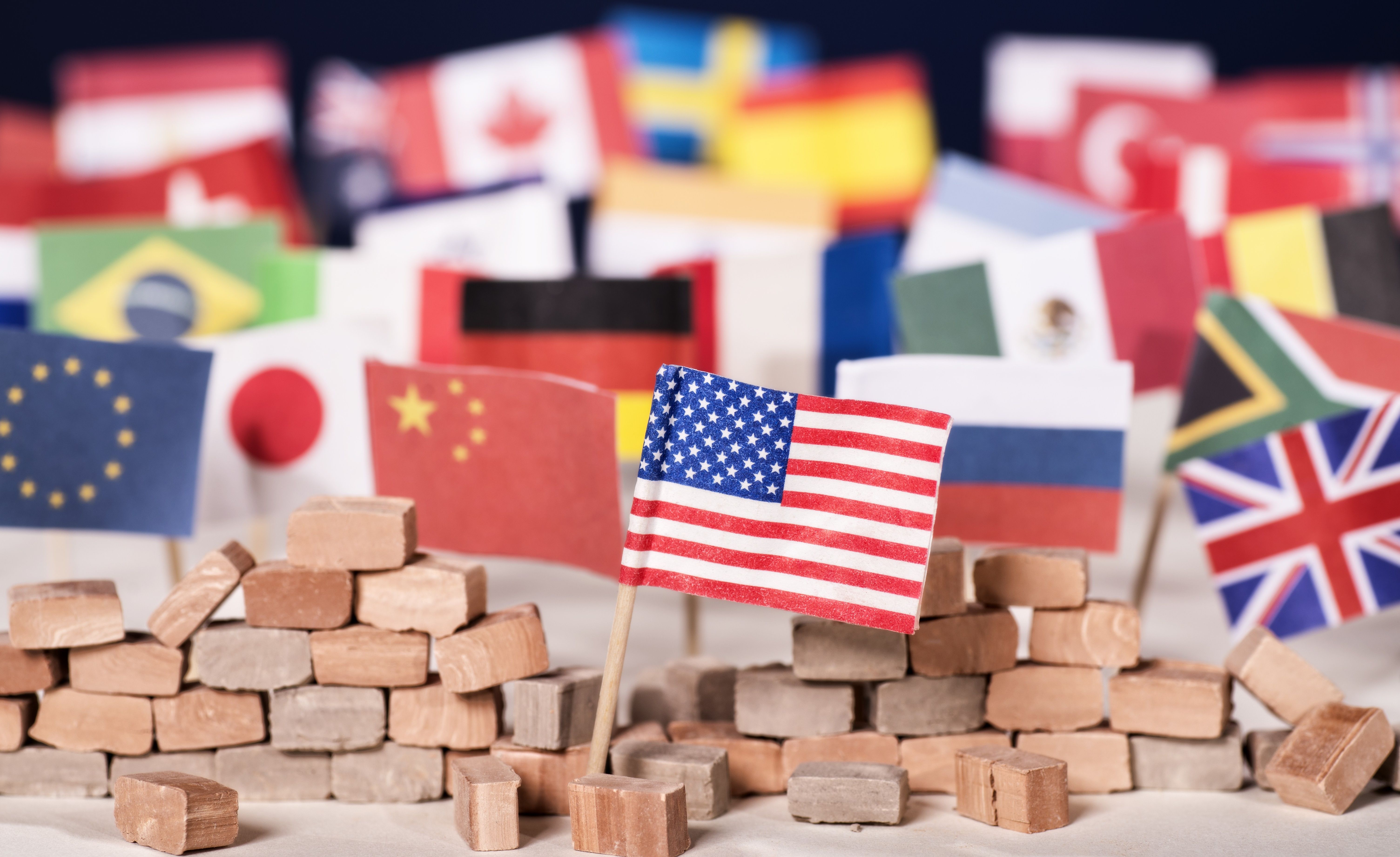A major survey of 11 European countries, the United States, Russia, and eight emerging regional powers has found that majorities or pluralities in most countries prefer to work with the United States over China on a broad range of issues. But China remains particularly attractive as a trade and economic partner, especially among publics in non-European middle powers.
The poll, which was conducted in September and early October, found that geopolitical alliances have become “more fractured and complex” in that national publics generally reject previous “bipolar framings” of the world order.
“The poll shows that Europe and America are perceived, globally, as more attractive and having more admirable values than both China and Russia, but that this perception does not necessarily translate into political alignment,” according to an analysis that accompanied the results.
“The findings suggest that we have entered an ‘a la carte’ world, where states mix and match their partners on different issues, rather than committing to a simple allegiance to one side or the other,” according to the report, entitled “Living in an a la carte world: What European policymakers should learn from global public opinion.”
The survey, which was sponsored by the European Council on Foreign Relations in cooperation with Oxford University’s Europe in a Changing World Project, polled at least 1,000 respondents in each of the countries that was covered. European countries surveyed included Denmark, Estonia, France, Germany, Italy, Poland, Portugal, Romania, Spain, Switzerland, and Great Britain.
Besides Russia and the U.S., the “non-European” countries included China, India, Turkey, South Africa, Saudi Arabia, Indonesia, South Korean, and Brazil. Altogether, more than 25,000 respondents took part.
The survey found a significant difference between the Western and non-Western countries regarding prospects for their respective futures. Majorities or pluralities in Western countries (and South Korea) were generally pessimistic about their countries’ futures, while majorities of respondents in India (86%), Indonesia (74%), China (69%), and Russia (54%) and a plurality in Brazil (40%) expressed confidence in their own country’s prospects.
At the same time, however, significant majorities of respondents in five of the non-Western countries — South Korea (75%), Turkey (71%), Brazil (68%) South Africa (65%) and Saudi Arabia (62%) said they would prefer to live in the U.S. or an EU country rather than Russia or China if they were forced to choose.
Majorities in the same countries plus India (80%), ranging from 50% in Saudi Arabia to 82% in South Korea, also said they would prefer their countries being part of an American bloc rather than aligned with China and its partners. A majority of Russian respondents, on the other hand, said they would choose China, while respondents in Indonesia were divided on the question.
Similarly, on human rights, strong majorities of respondents in South Korea, India, Brazil, South Africa, and Turkey, as well as a plurality (38%) in Saudi Arabia, said they prefer that their country be closer to the U.S. and its allies than to China and its partners on this issue. And similar majorities or pluralities, including Indonesia (38%,) indicated a desire to be closer to the U.S. than China with respect to security cooperation.
At the same time, however, Beijing’s attraction as a trading partner was greater than Washington’s in Russia (75%), Saudi Arabia (60%), Indonesia (53%), and Turkey (50%), while respondents in South Korea were roughly equally divided. Only respondents in India and Brazil said they leaned towards the U.S. on the question.
Despite the generally pro-Western responses by non-European respondents, they appeared to share the views of Western respondents that the West was in a state of general decline. Thus, outside Europe, 41% of respondents said they believed the European Union may “fall apart” in the next 20 years — a view most strongly held in China (67%), Saudi Arabia (62%), and Russia (54%). Majorities or pluralities in the non-Western states also said they believed that democracy in the U.S. could be lost within the same time period.
Views about the EU’s decline appeared to be partly correlate with the view that Russia could eventually prevail in the war in Ukraine. Nearly three quarters of non-Europeans who said they believe the EU could fall apart also anticipate Moscow’s victory in the war.
The survey found a significant gap between U.S. and European respondents regarding Ukraine. On average, one third of European respondents and 42% of U.S. respondents said they believe Ukraine needs to regain all its territory even if it means a longer war and its attendant costs, percentages that were greater than those Western respondents who said the war should end as soon as possible, even at the cost of Kyiv giving up territory.
But the dominant view in the non-Western countries is precisely that the war should end as soon as possible. Significantly, majorities in Russia, China, Saudi Arabia, and Turkey and pluralities in South Africa and Indonesia believe the U.S. is “already at war” with Russia.
Moreover, large majorities in China (82%), Russia (71%), and Saudi Arabia (57%), and pluralities in Indonesia (46%), South Africa (59%), Turkey (49%), and India (39%) see the U.S., EU, or Ukraine as the greatest obstacle to peace in the war.
- Poll: Most Europeans support neutrality in US-China conflict ›
- Poll: Europeans increasingly pessimistic about Ukraine war | Responsible Statecraft ›
















